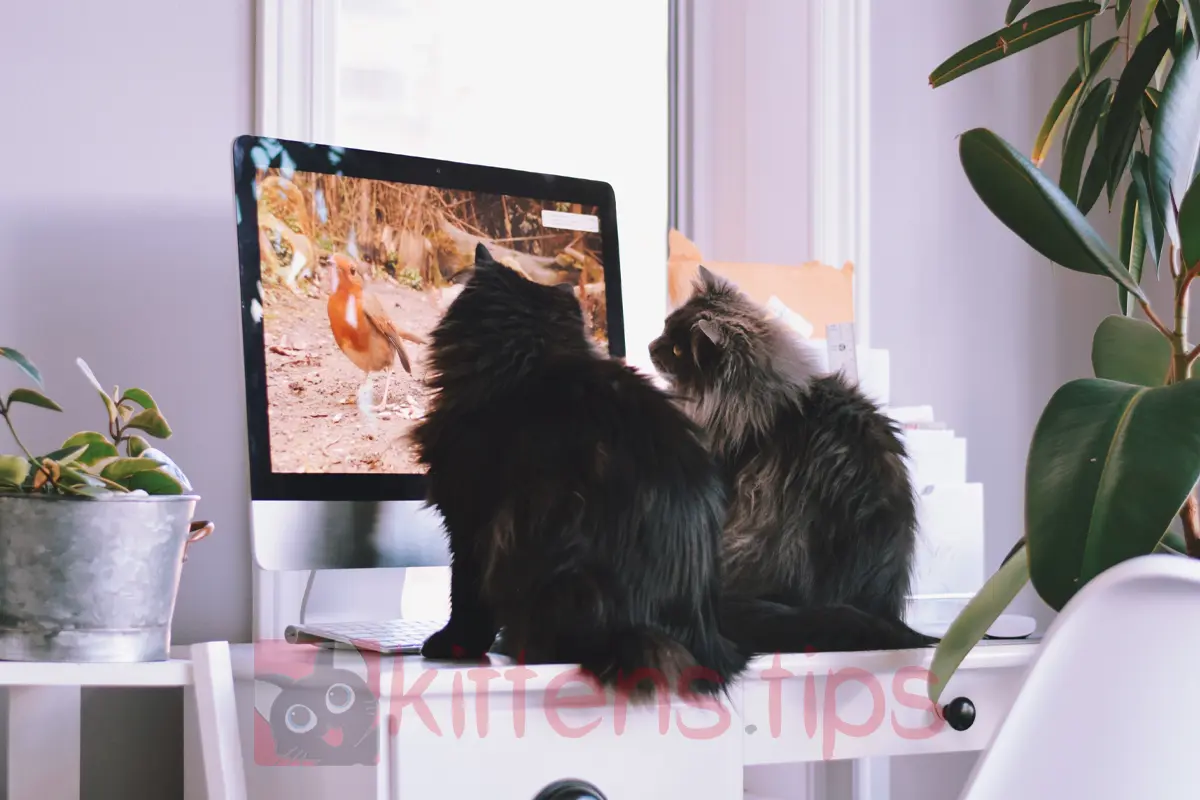Casi todos los dueños de gatos han observado que los gatos parlotean con los pájaros, ya sea que estén en la ventana o en la televisión. Estos sonidos inusuales hechos por gatos han llevado a numerosos debates entre los investigadores a lo largo de los años, ya que intentan descifrar el significado detrás de estos sonidos cuando los gatos ven pájaros, insectos o ratones.
Este comportamiento de los gatos ocurre con mayor frecuencia en situaciones en las que el gato está en el alféizar de una ventana y al otro lado del vidrio, ven gorriones, palomas u otras aves que representan presas para ellos. Este extraño sonido emitido por los gatos también puede ocurrir cuando ven insectos o roedores.
Cats also produce peculiar sounds when they see videos of birds on TV. On YouTube, there are actual «cartoons» for cats. Upon seeing birds on the TV screen, the majority of cats will make odd sounds, described as chattering and vocalizations, as if they are expressing complaint or concern about something.
¿Por qué los gatos parlotean con los pájaros?
Incluso si un gato está domesticado y vive en una casa o apartamento, su ADN sigue siendo el de un depredador, al igual que sus antepasados que vagaban por los bosques en busca de presas. Por lo tanto, si escuchas que un gato hace sonidos inusuales cuando ve pájaros, no hay necesidad de alarmarse o preocuparse. Es un comportamiento completamente normal para un gato.
Cats produce these unique sounds when they assume a «pounce» position, fixate their gaze on their prey, and prick up their ears. Researchers believe that cats make these peculiar sounds when they realize they can’t reach the desired prey. It’s an almost involuntary way for a cat to express its frustration. Moreover, often the odd sound produced by their jaws is interspersed with vocalizations that closely resemble cries or whines.
Mientras que los gatos hablan de pájaros, estas reacciones pueden ser divertidas para los dueños de gatos, para el gato, ver presas que no puede alcanzar se convierte en una fuente de estrés.
Some research has offered an alternative explanation for this feline reaction. The strange sound a cat makes when it sees nearby prey might actually be a «jaw warm-up» before delivering the fatal bite. It’s known that cats only need one bite to neutralize their prey. A cat skilled in hunting will often target the neck area to sever the most sensitive part of the prey’s spine. The chattering sound made with the corner of the mouth and the jaw could simulate the fatal bite.
Sin embargo, esta reacción ocurre solo cuando el gato es consciente de que no puede alcanzar a la presa. De hecho, si un gato ve presas accesibles, no hará que el el más mínimo sonido y mostrará todas sus cualidades felinas para lanzar un ataque a la velocidad del rayo que sorprende a la presa.
